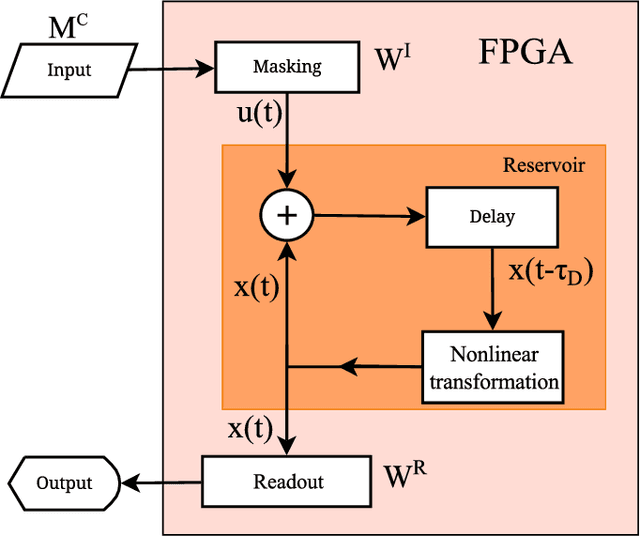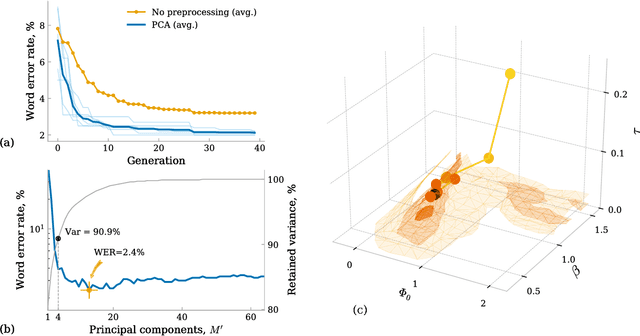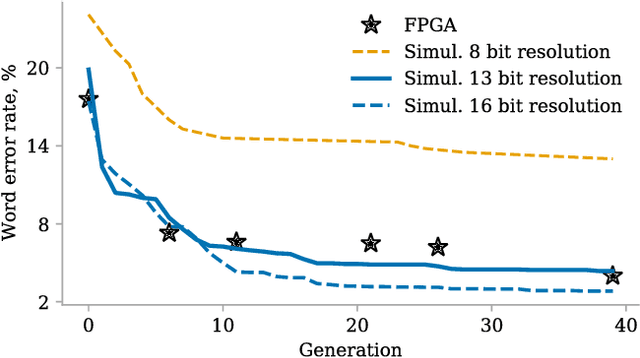Efficient Design of Hardware-Enabled Reservoir Computing in FPGAs
Paper and Code
Oct 02, 2018



In this work, we propose a new approach towards the efficient optimization and implementation of reservoir computing hardware reducing the required domain expert knowledge and optimization effort. First, we adapt the reservoir input mask to the structure of the data via linear autoencoders. We therefore incorporate the advantages of dimensionality reduction and dimensionality expansion achieved by conventional algorithmically efficient linear algebra procedures of principal component analysis. Second, we employ evolutionary-inspired genetic algorithm techniques resulting in a highly efficient optimization of reservoir dynamics with dramatically reduced number of evaluations comparing to exhaustive search. We illustrate the method on the so-called single-node reservoir computing architecture, especially suitable for implementation in ultrahigh-speed hardware. The combination of both methods and the resulting reduction of time required for performance optimization of a hardware system establish a strategy towards machine learning hardware capable of self-adaption to optimally solve specific problems. We confirm the validity of those principles building reservoir computing hardware based on a field-programmable gate array.
 Add to Chrome
Add to Chrome Add to Firefox
Add to Firefox Add to Edge
Add to Edge